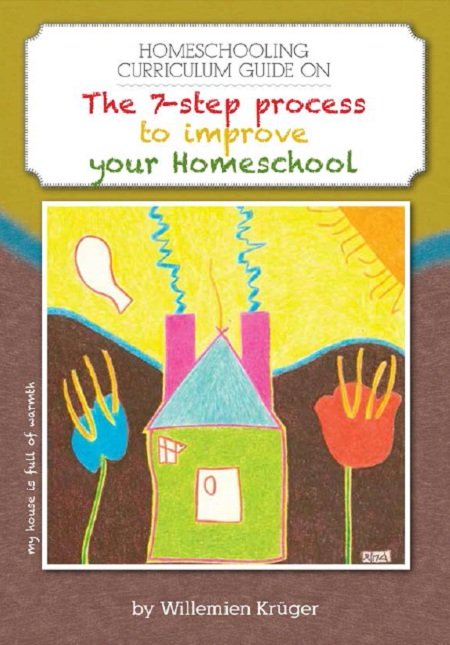Step 3 - Design a Course of Study
Now that you know where you want to head to (vision) and you have an understanding of different approaches, the next step is to develop a framework for a curriculum to either buy, get or compile.
The questions for this step include:
- What must my child learn – about what, when, how, and why?
- If you talk about knowledge areas as being subjects it boils down to - which subjects, when, and what?
As homeschoolers we can choose so much more than the typical subjects represented at school. So this step is really about thinking bigger!
What Is It About?
Designing a Course of Study (COS) is about putting together some courses (aka learning areas, knowledge areas, or the most common word to use, subjects) you want your child to study in order to achieve the vision.
A COS is most useful in that it provides the Overview or Framework to guide you to the next step of actually knowing what curriculum to choose.
Other terminology used when talking about this concept include Learning areas, Knowledge areas, Subjects, Curriculum, Standards or Scope and sequence.
An Overview of Most Learning Areas Presented at School Level
- Languages – including reading, writing, grammar, poetry, prose, literature, creative writing, report writing as well as developing oral presentation and reporting skills.
- Mathematics – including the basics (adding, subtraction, multiplication, division, fractions, decimals), algebra, geometry, trigonometry.
- Science – including Biology (plants, animals, human body), Physical sciences (physics, chemistry).
- History – including bible history, world history and country specific history.
- Geography – including earth sciences, astronomy, map work and weather.
- Technology – including product development, using/interacting with technology (PC, internet, home and kitchen appliances etc.).
- Economic sciences – including money management, some business and management skills (time management, project management).
- Arts – including the practical application, appreciation and history of the arts and music environment.
- Life skills – this can include everything else one needs to properly survive in the world e.g. Home maintenance, health and nutrition, first aid, safety skills, relationship skills, communication, conflict handling etc.
- Belief related knowledge and skills – for a Christian believer this includes Bible knowledge and application, developing a biblical worldview, true character and spiritual development and learning to really love.
When you do some research on Course of Study you will most likely find a variety but also the ‘typical’ course of study.
Typical courses of study are just an arbitrary putting together of lots of information somebody thought a child should learn, which may or may not make sense to you.
Often one will also find that the typical course of study’s content actually reappear every year with very little variety in the content.
So for the concerned mother who think that her child might miss something – s/he will probably not miss anything more than a typical school child will in any case.
For Actions to take and Templates to use...
Get the
Homeschooling Guide on The 7-Step Process to Improve Your Homeschool
FREE for complete info on each step including templates for your use
For an example of what we have done Go to Step 3 Course of study personal
For more information on the phases click on the relevant link:
Back to 7 Steps process overview
Back to Homeschooling Curriculum Guide Home Page
